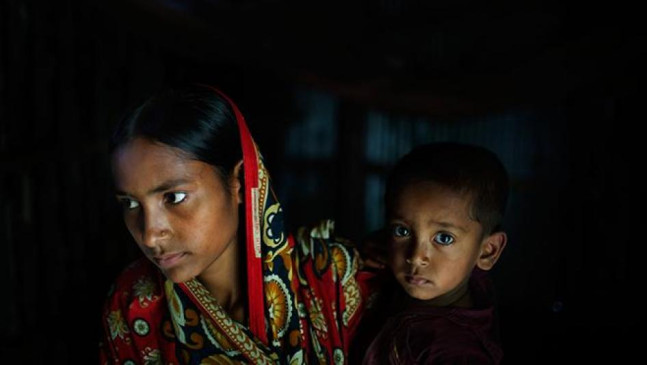The 2017-18 budget of the Government of Bangladesh (GOB) increases taxes on bank deposits by 60 percent, much to the dismay of savers and many economists. This commentary presents some alternative angles from which to evaluate the controversial measure.
First, tax on bank deposit is taxation of the principal amount invested, that is, the savings or wealth of depositors, as opposed to taxation of the interest income. This clearly constitutes partial expropriation of the depositors' savings/wealth that over time can be highly punitive. For example, consider annually rolling over a one-year term deposit, starting with BDT 100, annual interest rate of six percent and a tax rate of 10 percent on interest income. A 0.8 percent (compared to 0.5 percent) tax on bank deposit will reduce the accumulated sum in 10 years from BDT 161.34 to BDT 156.77, meaning a wealth expropriation of BDT 4.57 by the GOB in the form of deposit taxation. With five percent annual inflation adjustment, the deposit tax reduces the depositor's accumulated sum from BDT 99.05 to BDT 96.24, implying actually an additional loss of BDT 2.81 worth of real goods and services that the depositor could have enjoyed today instead of saving. This is why economists believe that the increased deposit tax is likely to be harmful for increasing or perhaps even retaining the level of domestic savings.
Some argue that the savers may shift some of their bank deposits to the shadow banking sector, stock market and informal borrowing/lending markets. Reduced deposits would in turn shrink consumer and business loans and other investments of banks. Such a banking disintermediation can hardly be considered conducive to the goals of above seven percent economic growth target and a speedy transition into the coveted upper middle income status. Meantime, funds fleeing the formal banking system may end up spurring illegal trades in drugs and arms and terrorism finance.
Second, wealth tax in the form of annual taxation of real property holdings is, however, very common globally (e.g. state and/or municipal taxes on assessed values of land, homes, apartments, etc). The difference is that real estate properties in general appreciate over time, both nominally and on inflation-adjusted basis, but bank deposits do not. Thus, bank deposit tax is effectively more exacting, albeit the rate may be lower.
Third, although taxation of bank deposits of clients seems historically very uncommon, monetary authorities in various countries have at times resorted to taxation of deposits that the banks hold with the monetary authority. This is the case right now in some jurisdictions, e.g. Japan and Sweden, in the form of negative interest rate paid by the monetary authority. Such taxation as a monetary policy tool is used to encourage banks to shift their cash to business lending, to enhance the spread of long-term over short-term interest rates, and to dampen excessive appreciation of the currency. Importantly, however, such a policy does not generate tax revenue for the governments and hence is of no direct help to address budgetary shortfalls.
Although rare, there are instances (e.g. Italy in 1992, Cyprus in 2013) of one-time capital levy on client deposits to address severe budgetary or financial distress conditions. This is not the case in Bangladesh.
Fourth, in a way, taxation of bank deposits is like mandatory collection of Zakat al-Mal (based on personal income and property) in excess of Nisab (the minimum amount that a Muslim must have before being obliged to zakat) (approximately, the market value of 85 grams of gold or 612.3 grams of silver) in Saudi Arabia, Pakistan, Sudan, Libya, Yemen and Malaysia, although the 'zakatable' asset categories vary by jurisdiction and religious sect (R. Powell, 2009, https://ssrn.com/abstract=1351024; https://www.islamicbanker.com/education/zakat-al-mal). Pakistan's Zakat and Ushr Ordinance No. XVIII of 1980 stipulates mandatory at-source collection of Zakat on balances in savings accounts, and fixed deposits and certificates with banks, national savings centres and post offices. The rationale for such a system includes discouraging cash hoarding, encouraging productive investments that benefit the community at large, cost efficiency in collection, and distribution to Shariah-compliant beneficiaries according to national/regional needs.
The key difference of taxation of bank deposit is that the revenues are not dedicated to any specific purpose or beneficiary group. Further, unlike mandatory Zakat collection, the bank deposit tax is levied on non-Muslims as well. But the bank deposit tax shares the revenue collection efficiency and transparency that is highly desirable for Bangladesh. Importantly, however, both systems are prone to the risk of significant instability of funds (withdrawals) from the covered asset categories and institutions around the statutory dates of assessment and collection.
Fifth, the dash for tax revenue in the new budget is to a marked extent driven by the large infrastructure and power projects for which external finance is either not tapped significantly by choice or is available at higher cost. The sizable cost overrun at Padma Bridge and the now manifold higher cost estimate for the Rooppur Nuclear Power Plant project make the GOB budgetary problem even worse. In this context, it seems that the GOB is executing the much-proclaimed "self-financing" strategy, to some extent, by way of increased tax collected from the bank depositors.
Sixth, GOB is facing the dual problems of shrinking tax revenue on deposit interest due to falling rates and the increasing funding need to recapitalise the state-owned commercial banks saddled with mounting loan losses. As such, the increased bank deposit tax may be construed as an easily accessible means for GOB to recover the losses from the same sector (the depositors). Unfortunately though, if depositors reshuffle their asset mix from bank deposits to low income tax vehicles like shares and real estate properties, then the GOB's revenue problem will become worse instead.
In conclusion, as GOB is cash-strapped while in pursuit of expanded set of big projects, taxation of client deposits in banks at a higher rate is perhaps a very transparent and cost effective way of raising much needed extra revenue. But the GOB could have considered taxation of bank assets (loans and other investments) instead of the deposits of the clients. Although banks may find genuine lending less attractive under such a scenario, a beneficial result for the country would be a reduction in the outsizing of loans based on inflated and dubious collaterals and the practice of new enlarged loans to defaulting borrowers to avoid official defaults.
The writer is a Professor at McGill University, Montreal, Canada.
E-mail: mo.chaudhury@mcgill.ca, mochaudhury@gmail.com





